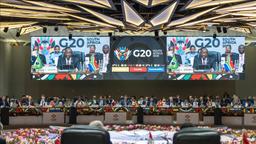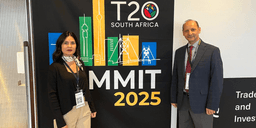Related Publication Files

Report / Feride İnan & Güneş Aşık
"The past few decades have been marked by the increasing integration and interconnectedness of the global economy, driven by trade-liberalizing policies, the removal of controls previously imposed on capital, and technological progress. The new global order is also characterized by the rise of emerging economies markets as significant global players, which has in turn reinforced the degree of global interconnectedness between all countries. The far-reaching global impact of the 2008 crisis, which began after the meltdown of the US subprime mortgage market, points to the breadth and depth of global connections and to the blurred boundaries between domestic and global economic affairs. Most importantly, the crisis revealed a whole range of growing vulnerabilities of the global economic system—from the rising systemic risk in financial markets to spillovers across countries or policy areas—and brought inter-governmental cooperation to the forefront of debates on global economic relations..."




